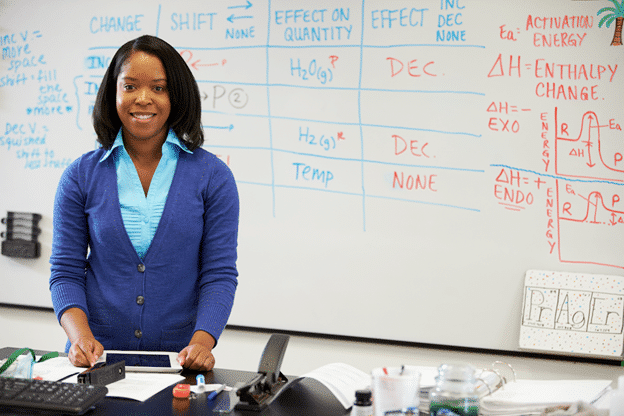Challenging Times and the Best of Times for Educators
The COVID-19 pandemic made a profound impact our nation’s education system. In most states, educational policies have been implemented to promote the wearing of face coverings, physical distancing, virtual instruction, and intermittent school closures based on the rise of positive COVID-19 cases reported in local communities. Despite the many challenges educators face during this unprecedented time, there are lessons learned and a call for transformation that make this the best of times to pursue a teaching career. Here are some reasons why.
Bridging the Digital Divide
Teacher education, like most other professions, is seeking a renewal driven largely by the effects of the pandemic. New methods of teaching, particularly for the virtual environment, are in full bloom. While the digital divide is not a new phenomenon, a recent study by The Education Trust reports 50% of low-income and 42% of families of color in the U.S. lack sufficient electronic devices at home needed to access distance learning. There is no shortage of innovations to develop new ways to ensure the continuity of student learning and to address the digital divide among children of both the wealthiest and most economically challenged families. The same holds true for higher education, ensuring that digital inequity and inclusion are no longer afterthoughts. For educator preparation programs (EPPs) seeking to ensure graduates are profession-ready, the commitment to reimagine traditional instructional practices and to maximize learning technologies for the advancement of all learners have become a central focus.
Focusing on Educational Equity and Racial Justice
The focus on educational equity undergirds research, policy, and instruction across the P-20 continuum now more than ever. In today’s context, school districts and EPPs are compelled to reconsider curriculums and policies through the lens of educational equity based on race, socioeconomic status, and students’ living conditions. The National Association of Educators (NEA) explains, “While there is much that educators and school leaders are still learning about the pandemic, having collective ideas to ensure the promise of education equity in a time of crisis is critical.” The COVID pandemic, along with incidents of racial injustice, has allowed educators to elevate issues about oppression, anchoring long-term effects beyond the pandemic. Faculty and administrators at institutions of higher education are also advocating for changes across the curriculum regarding violence and injustice against racial minority groups. Seeking long-term solutions for dismantling systemic racism, universities are changing campus culture by examining policies and structures to advance diversity and inclusivity.
Social-emotional Wellness
Educators also are keener to the social-emotional health and overall wellness of students, a significant factor of effective pedagogy, in ways that have often gone understated historically. States like Pennsylvania developed comprehensive plans to ensure families, students, and staff have psychological, social, and physical safety. The plans address wellness within the virtual environment and pay particular attention to students of diverse abilities and performance levels. A cornerstone of such planning is ongoing professional development of school staff to monitor risks for timely response to concerns for maintaining a safe and inclusive learning environment.
Best of Times
The rate of change spawned by the pandemic has helped to amplify the importance of educational equity, diversity, and innovation to advance the quality of learning for all students. Now is the opportune time for future teachers to become advocates and activists for creating sustainable solutions for improving education. Now is the best time to join the ranks.
Dr. Jacob Easley II is the dean of the graduate school of education at Touro College in New York, and a board of director for the American Association of Colleges for Teacher Education (AACTE).

